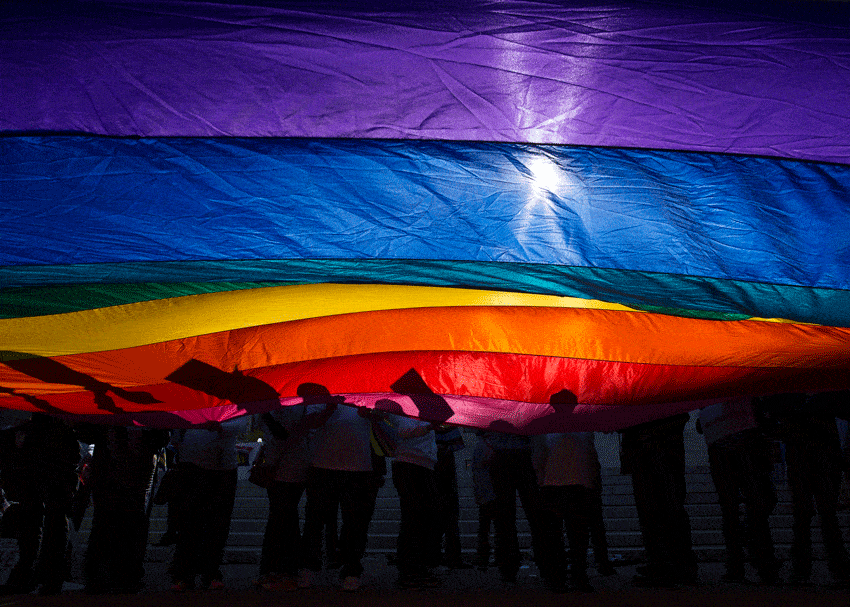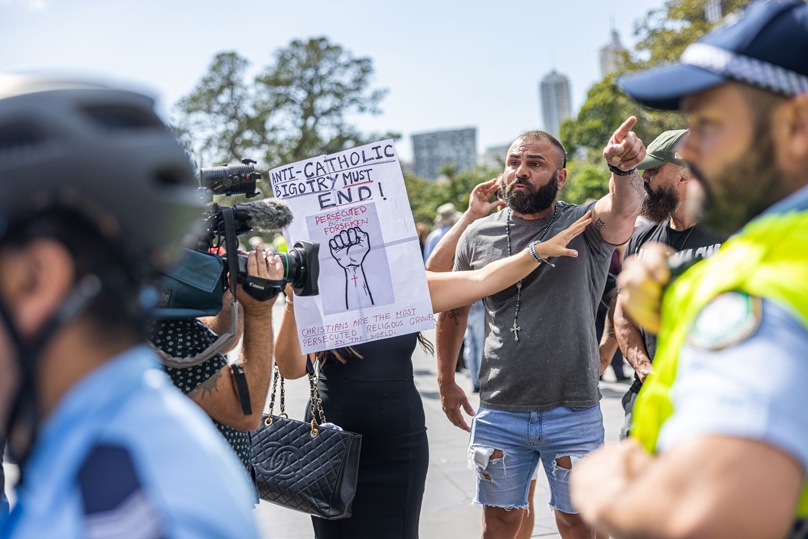
I have to say that I have been quite conflicted over the last couple of weeks about how to respond to the 17-day “celebration” of World Pride.
On the one hand, it seems as though there was no escape from the “rainbow’ ideology.”
To coincide with the beginning of WorldPride, the Independent Member for Sydney, Alex Greenwich, would try to push through a ban on “conversion therapy” that is less about protecting people and more about outlawing Christian teaching on sexual morality.
Then there were the Vinnies stores which departed from any form of Catholicism (and, dare I say, decency) with their pride-themed front windows that featured everything from rainbow flags to mannequins wearing bondage gear and rosary beads.
There was the Mass advertised as being in thanksgiving for the LGBT community held in Glebe, the now infamous “joke” on The Project and the prime minister and NSW opposition leader who, while noticeably absent from Cardinal George Pell’s funeral, marched in the Mardi Gras and across the harbour bridge.
“Some Catholics respectfully made their voices heard, but there were some inappropriate responses too.”
Woolworths is donating a portion of sales of various brands to Minus18, a pro-LGBT organisation aimed at children and you can’t go to Coles without rainbow flags and bags.
There was a lot to be deeply concerned and even dismayed about, which had nothing to do with the people who were attending the events themselves.
Some Catholics respectfully made their voices heard, but there were some inappropriate responses too.
Some reportedly hurled verbal abuse at those participating in “pride” events, spat on people attempting to enter the LGBT Mass, and prayed public rosaries that – without wanting to judge intentions – came across as more an act of protest than prayerful petition.
This type of response does nothing to witness to the love and mercy of Christ, nor is it effective. I’ve never met anyone who has been successfully “yelled” into conversion.

What to make of it all? I was struck by something in the reports about the “pride march” across Sydney Harbour Bridge to officially close out WorldPride.
According to the ABC, New Zealand actor Sam Neill, who joined the march in solidarity, said:
“Pride of course is the opposite of shame and there was a lot of shame back in the day. That’s pretty much gone and I’m glad of that. But this isn’t true everywhere in the world and I think that’s what WorldPride is about.”
But shame is not pride’s opposite. Humility is.
This isn’t just a matter of semantics. If Sam Neill is right and the pushing of pride is a response to shame, then maybe we can begin to see why people have been reacting so strongly on either “side.”
“We all know there are kinds of shame that are healthy and some that aren’t. The unhealthy kind makes us feel that who we are, at our core, is bad, rather than what we have done.”
Everyone’s favourite internet preacher, Father Mike Schmitz, has described the difference between guilt and shame in this way: guilt is failing to meet an objective standard, and shame is failing in someone else’s eyes.
Father Schmitz goes on to say that guilt can be remedied with confession, but shame – because it involves other people – is remedied through relationship.
We all know there are kinds of shame that are healthy and some that aren’t. The unhealthy kind makes us feel that who we are, at our core, is bad, rather than what we have done.
Anyone who has avoided confession because they are too ashamed to go knows what unhealthy shame feels like.
We don’t want anyone to sit in that type of shame because it keeps us away from restoring our relationship with Christ when we need him most.

Given this, we need to accompany people out of the unhealthy shame, not towards “healthy shame” but hopefully to repentance and conversion. This means we have to be both firm and gentle when it comes to the “pride” movement.
I think most of us within the church instinctively understand this, but also know how difficult it is to strike the right balance.
Some within the Church community (like Vinnies and those organising thanksgiving Masses for the LGBT community) think embracing the “pride” movement is the right way forward.
But if we seek to remove shame absent the call to conversion, we empty the Gospel of its power, deny our need for salvation and fail to love people as we should.
Others—and I would include myself in this group—see pride as not only a sin but, as St Augustine taught, the root of all sins and source of alienation from God.
“TFor Catholics who strongly objected to WorldPride, and yelled at participants to repent, consider that humility must be preached with humility, not with aggression.”
This means we preach pride’s true opposite: humility, not shame.
The church exists to call everyone to conversion because we are all in need of conversion, and true conversion requires humility.
For Catholics who strongly objected to WorldPride, and yelled at participants to repent, consider that humility must be preached with humility, not with aggression.
After all, pride is not just found in Sydney during Mardi Gras. You and I can have our own mini WorldPride festivals in our own hearts, no matter how many rosaries or Masses we attend.
As we progress through Lent, perhaps we should keep this in mind. No matter whether we spent Sunday morning in Mass or marching over the bridge, we all struggle with pride. The difference is whether we’re willing to admit it, and do something about it in our own lives.
